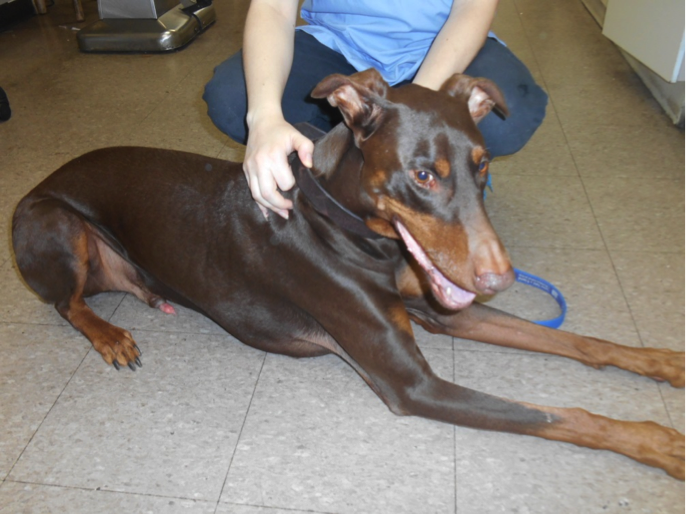Age isn’t a disease; we have started seeing in the human population that we are able to be healthier and more strenuously active for longer. Our pets can be the same way with a little help from us focusing on veterinary care, diet and exercise.
The most commonly noticed sign that people see in their pets is pain. Most people associate this with the simple slowing down of age, when the reality is that this is often treatable. Cats and dogs show pain in different ways. Dogs are more likely to show overt signs of being uncomfortable than cats as they are pack animals, and the pack will protect it’s weaker members. Cats are more solitary in nature and are more likely to be seen as prey if they show that they are painful in the wild.
Common signs of pain in cats are:
- Hiding
- Behavior changes
- A decrease in favoured activities (jumping, playing)
- Inappropriate elimination
Common signs of pain in dogs are:
- Reduced mobility
- May bite when touched in sore areas
- Has a hard time getting up on certain surfaces
- Decrease in play
- Behavior changes
Pain is not the only thing we need to worry about in our aging pets. There are other signs that can show that a problem is starting to develop. Keeping a close eye on these signs can make a true difference in catching problems early.
- Changes in eating patterns (increase/decrease)
- Changes in drinking patterns (increase/decrease)
- Weight gain or loss
- Coat and skin condition
- Mentality (bright and alert vs. dull and less responsive)
- General mobility
Your veterinarian can help differentiate what diseases might be causing these symptoms; sometimes it’s not a big problem, other times it is. On occasion, there are multiple problems, but whatever the symptom, they are almost always easier to manage when caught early. Some symptoms that have had the chance to advance over time tend to be more difficult to manage.
Some common diseases and symptoms seen in older pets are:
- Kidney disease (drinking more water, losing weight, eating less, more lethargic)
- Liver disease (vomiting/diarrhea, eating less, lethargic)
- Diabetes (drinking more water, urinating more, eating lots, poss. Weight loss)
- Arthritis (painful, lethargic, limping)
These conditions can usually be determined by running some simple tests including basic blood work, urinanalysis or x-rays. Blood work usually involves looking at 2 different parts of the blood; the cells and the serum. When looking at the cells, we are looking at the number of cells to ensure that they are normal, and how the cells look to make sure that they can function normally. The serum carries a number of chemicals that indicate how the different organs (kidney, liver, pancreas, ect.)are working. A urinanalysis is a good test to evaluate bladder health as well as being an excellent second test for the kidneys since they filter wastes into the bladder. X-rays are also a wonderful tool to help the Dr. pin point arthritis in joints and give an idea of the severity of the problem.
Performing these tests and finding these conditions early means that your aging pets are able enjoy their golden years as much as possible comfortably. If you have any questions about your senior pet or concerns about their aging, please call the team at North Town Veterinary Hospital!




